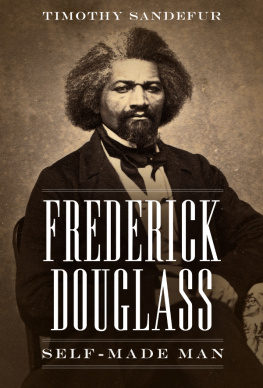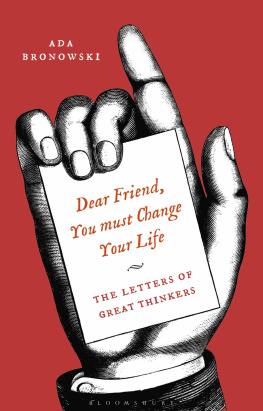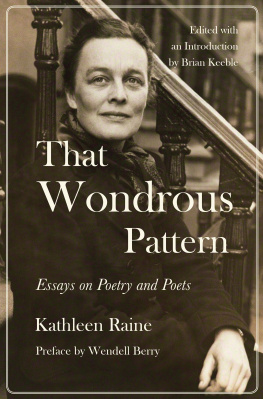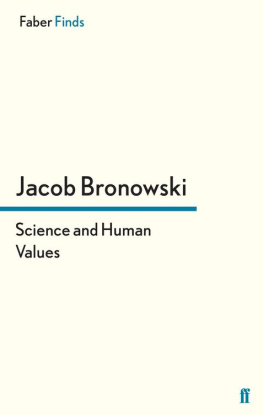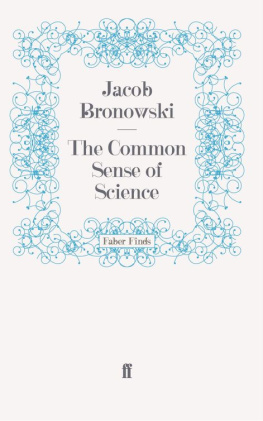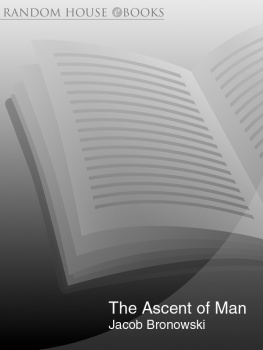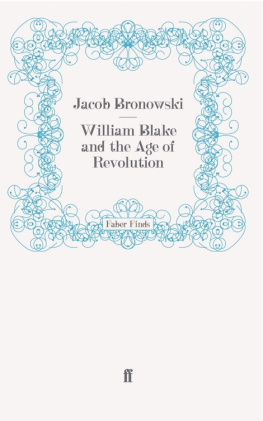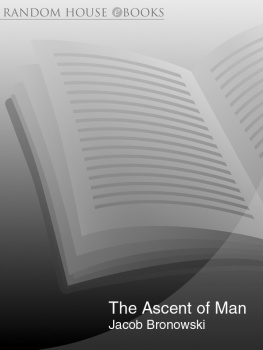B ronowski wrote this poem, The Thumb in the Margin, in 1940, shortly after ending his relationship with Eirlys Roberts and beginning a relationship with Rita Coblentz, whom he married a year later. The poem reflects on his time in Spain, the coming of World War II, and his feelings at the end of a romance that he likens to the biblical story of Jacob and Rachel. Cagoulards refers to members of a French Fascist terrorist organization, Comit secret daction rvolutionnaire, which was nicknamed La Cagoule.
Thirty years a fool, and two a boor
put me to school, and taught me to despise
tipster and bigot, and the man of rule,
whoever claims to live by being wise;
and that no nostrum but contempt will cure
two years a boor, and thirty years a fool.
I gave myself this year to make amends
for all that idle discomfort, which flattered
I must be tragic, or make history.
History rolls its own thunder latterly,
playful as a puppy; and, as animal, rends
the paper promise with a clap of glory.
No longer is disaster what is dreamed
between the lids of what I feared, and dare.
It is the eyeball of the world which wakes
on roofs of nightmare, where the moonlight chalks
her icy orbit, under a sky at war;
and sees the craters swinging nearer, screaming.
How should his story dare to make a man
match that defeat, because he lived in want
of happiness, like others; but learned to choose
to sleep alone and think the nights well spent;
loving a girl like reason, and being then
most moved when all her reasons mastered his?
Yet let me tell the story, for a fable
either of spirit, or the famished passion
which bites the apple world and spits the core.
I shared my folly with any man of fashion,
finding it no less for being reasonable,
nor, because it is pitiful, think his the worse.
A Polish Jew spent his precocious childhood
on the Sudeten border; and had it plain
that such a one could never live at home,
live he the year long with a love in Spain
that, too, sleeps in the amber of my blood.
This year I wait in England for the bombs.
Two revolutions bitterly slaked the guns,
with bitter men, of Germanythere came
the starveling boy to find an English slum
sanctuary, or a knife to scratch my name
on school and college; while the revolutions,
silently, were betrayed; I heard no drums.
What might that hungry mind, that hungry mouth
have heard, had not my ear been satisfied
with abstract spaces for geometry,
abstruse music of a verse which lied.
They gave assurance to content a youth
to take a mistress, and write poetry.
Even under the drums is a pulse: love
can be momentous, and the blood suddenly
feel in the spinning head the centrifuge
pull on the middle of the heart; nor be
uneasy that the piling force may move
into destruction when the beat grows huge.
The eye will see a girl, and etch the error,
acid, upon ambition; and be devout
the act of seeing had been made for this,
the act of thinking is her thought read out;
and that her mind can be the burning mirror
wherein my life and hers shall hiss and fuse.
I, yes, saw such a one; and served my time,
a Jacob, chastely, to possess that riches;
grudging no more the labour than to share
what all must envy, because each bewitches.
Hers was the breathless ladder I learned to climb
where sweet and stinging went the singing air.
I hold to-night that night I took her hand
so great a happiness, the last of nights
but equaled it; nor would forgo for either
two years of pain I wrestled for her sight
so great a pain, I cannot understand
she charmed and loved me, and was true in neither.
And count those too, how should I forget, the years
we smuggled happiness; were constant; drove
two hundred miles to spend a night in love.
We did not sense the sultry Europe when
we pressed for mastery, and left in tears;
drive back two hundred miles, but drive alone.
Neither do I belittle the pain I cost her
because, being headstrong and intolerant
and wretched with the loss of days undone
watching out nights, I would be dominant;
cruel when angry, and when glad, preposterous;
and, being lonely, made her be alone.
I, who foretold all tragedies: the wounds
of Austria, Spain crucified, the walls
ghostly with soldiers on the wine-bled Rhine
I knew them all, but ours, original,
because the mounting reason is caught in bounds
by men whose passion masks the fury of swine.
The tears of angels are the sweat of torture;
light seeping through the page flows from their stain,
and historys, the thumb in the margin, leaving
the angel print because these flow again:
because a man wants certainty of future,
a girl would rather love than live by grieving.
Would rather be a woman than created
in any high imaginary room
a ghost on water where the light is clear
to hear my words re-echo like a doom
hers, because I thought we two were mated;
would sooner be anothers than my dear.
Dear, be forgiving, for I wronged, and wrong you;
yet let me speak. I thought that all would fail,
world and friends, peace, the dignity of men;
but not we two. The merciless thought like hail
drives me to-night because I have seen you, true,
forswear the true, and let the best be beaten.
It is not arrogance which makes me cry
there are no men like me, who hold the good
higher than every personal whim or hurt;
contemptuous and despairing, yes, but
for whom worlds bear, that they may live. They die.
You stamped that man deliberately in dirt.
You made a rant of what had been heroic.
I had thought such men as I should hold to, still,
the desert tragedies of Greece and Spain.
All, all is nothing now but obstinate will.
The strong philosopher creeps to the stoic;
the tragic hero makes a show of pain.
Cries, world, be burst with medlar ripeness; fall,
you ashes that ferment the sweating apple.
The willow stump shall glow at night, the light
by day run rivers in the fallow, dappled.
You made a mockery of the man, to call
destruction, who had once believed in right.
Do not take trouble even to smile: I beckon
none to destroy but me; none to destruction
but that proud man was me. The time is ready
the man of folly be a man of action,
the two year boor forget the bitter reckoning
and walk the street which rinses as it bleeds.
My English Miss, my snob that stints and stings,
I shall not love the like of you again.
The face I fumble shall say tenderness
to bread or hawker, being easy, open,
company for men and at home with things;
the mind be simple but be sharp as these,
who come to knowledge not by will but use,
live with themselves and husband no regrets.
Teach me to speak like her, homely and searching,
to men in trams and buying cigarettes;
what women think of when they hear the news,
which councillors are dead, what soldiers marching.
Their life is cancered with the rich, the hard
and iron-faced; the ironmasters; all
who buy the poor for lunch and spend the title
on afternoons with fear and cagoulards
the powerful, the possessed. And Europe falls
to all their evil because we abide it.
I with my cynical illusions; you
mercenary of your comfort, with the foible
only the lesions of professional women


